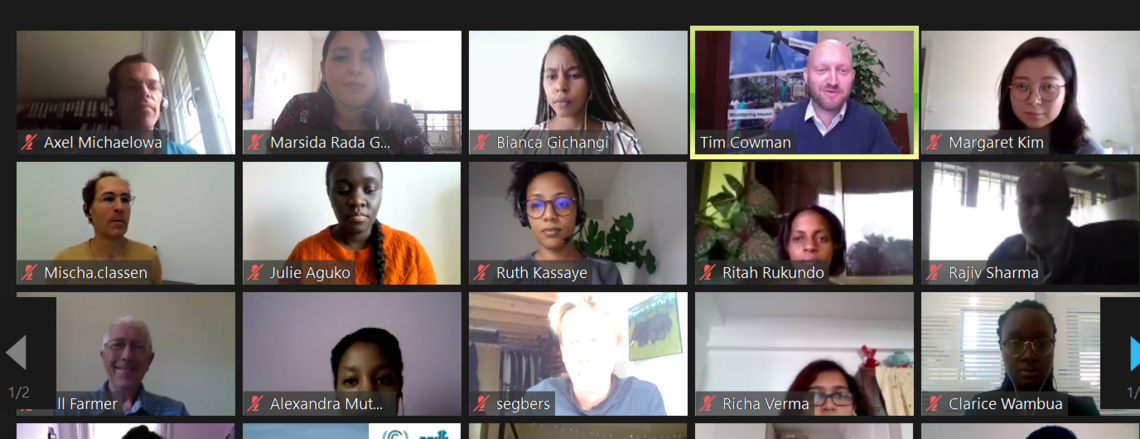November 2020 - The Global Carbon Markets Project – Uganda/East Africa hosted a three days online dialogue focusing on the role of the private sector in carbon market activities. The event organized in September 2020 on behalf of BMU and in collaboration with the Eastern Africa Alliance on Carbon Markets and Climate Finance, the UNFCCC Regional Collaboration Centre Kampala and the Climate Finance Innovators project brought together over 60 carbon market experts, including project developers from Eastern Africa, financiers, certification standards experts, UNFCCC representatives and development partners.
The event featured three session dialogues, covering the following topics:
- Carbon market engagement and the Clean Development Mechanism (CDM) Transition,
- Key features of the Paris Agreement and the Nationally Determined Contributions and
- Piloting of Article 6 of the Paris Agreement.
The sessions were intended to build readiness for the potential CDM transition and future implementation of Article 6 amongst existing and aspiring project developers in the region. The event provided participants with information on the latest developments within the carbon market and networking through a community of practice for project developers across Eastern Africa, building on similar interactions in recent years.
Key messages from the sessions included:
- The lack of clarity at the UNFCCC level is an extremely serious market concern that, coupled with the postponement of COP26, means there is a real risk of having a CDM regulatory gap after 2020. In response, certain project developers in the region are already stalling on verification investment decisions and considering a shift to the voluntary carbon standards. This has the potential to fundamentally undermine confidence, in particular of the private sector, in internationally governed market mechanisms;
- The carbon market is living through a dynamic transition period and it is increasingly challenging to keep track of developments that potentially have an impact on both existing and planned projects;
- Emerging significant initiatives developed under the potential future provisions of Article 6 have raised interest in regional project developers even though there remains a lack of clarity on the exact role they could play. In that regard there is growing pressure on host governments across the region to ramp up, with urgency, the creation of long-term governance structures that will enable confident engagement under Article 6.
The event has shown that it will be key to keep private sector participants informed about the developments within the carbon markets and to provide stakeholders with a platform for exchange and mutual learning.
The video documentation as well as the presentations can be found here.

